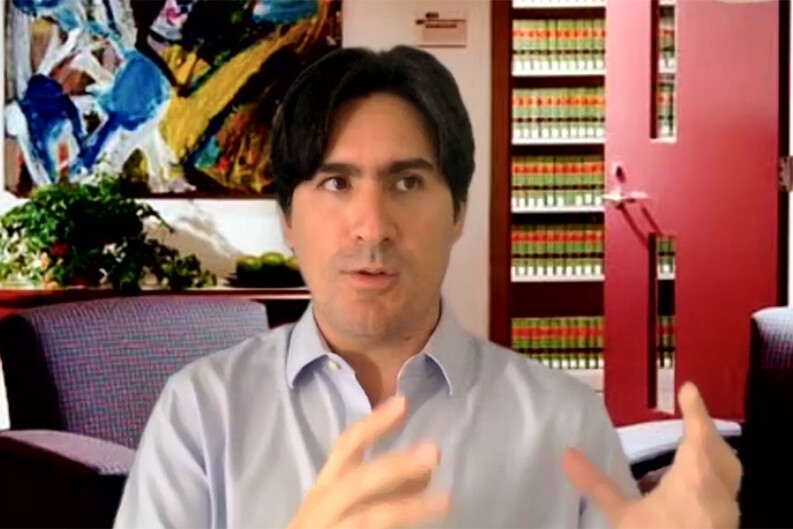Human Rights Workshop: Jorge Contesse Considers the Constitutional Crisis in Chile

Jorge Contesse ’05 LLM, ’14 JSD led the March 5, 2021 Human Rights Workshop titled “Chile’s Constitutional Awakening.” A scholar of international human rights law and comparative constitutional law, Contesse is an Associate Professor of Law and founding Director of the Center for Transnational Law at Rutgers Law School. He is also a Permanent Visiting Professor at Diego Portales Law School, in Santiago.
Contesse provided context on the protests challenging Chile’s constitutional structure and the state’s shockingly violent response. He highlighted the rallying cry uniting many Chileans during the October 2019 protests: “It's not about 30 pesos, it’s about 30 years,” referring to the years since Augusto Pinochet stepped down up to the time of Chilean students’ and workers’ campaigns for lower public transit fares and higher wages. Decades after Pinochet left power, Contesse said, the country has seen an “organic challenge of the constitutional structure that Pinochet left very smartly in the Constitution.”
In response to this constitutional awakening, and the protests that have accompanied it, there have been egregious human rights violations the like of which have not been seen since the days of Pinochet, according to Contesse.
“Chile is seen as the good student in a messy class and now, all of a sudden, we were seeing these massive protests and human rights violations,” he said. Many photographs capturing these violations, he said, are being taken by protesters, including Mapuche people who belong to the largest group of Indigenous peoples in Chile. “Social media and everyone carrying a smartphone has changed the way in which people are exposed to human rights violations and are exposing human rights violations,” Contesse noted. Numerous protesters suffered eye injuries at the hands of police, Contesse said, pointing to a New York Times story in which reporters tracked down some of these victims in Chile. Bleeding eyes, Contesse explained, have now become a “symbol of this constitutional crisis.”
In October 2020, a year after the protests began, 78 percent of constituents voted in favor of drafting a new constitution. Still, there was substantial fear around the shift given the challenges faced during constitutional processes in neighboring countries like Venezuela and Ecuador, which many pundits insisted on drawing comparisons from. The pandemic, according to Contesse, has caused further difficulties, but has also opened up new opportunities: on one hand, the pandemic has restricted “massive mobilizations,” while on the other, it has allowed people from very different places to see that they share “similar grievances.”
Contesse detailed uncertainties around some provisions in the new constitution, including those around the state of exception and social rights. Chile’s current administration, he said, recently requested that Congress extend, once more, the state of exception. He noted that Chile was under a state of exception in 2019, right after the protests erupted, and then again in March 2020. These periods granted the government emergency powers in what he noted is arguably “one of, if not the longest state of exception” a country has imposed during the pandemic. He also described how the “adoption and articulation of social rights” are “key” for protesters: the inclusion of social rights is “how people understand [that] the constitution will somehow address their grievances and problems.” Representation of marginalized communities is another of the protesters’ priorities, and, Contesse said, after “very painful discussions,” Congress agreed to reserve seats for representatives of Indigenous peoples in the constitutional convention that will be responsible for drafting the new constitution.
Contesse concluded by reflecting on whether a truth commission or a similar body could be established to respond to the human rights violations inflicted on protesters if the courts fail to hold those responsible to account. He hoped a truth commission might provide not only reparations, but also “a space for storytelling” on the abuse Chilean protesters have suffered.


